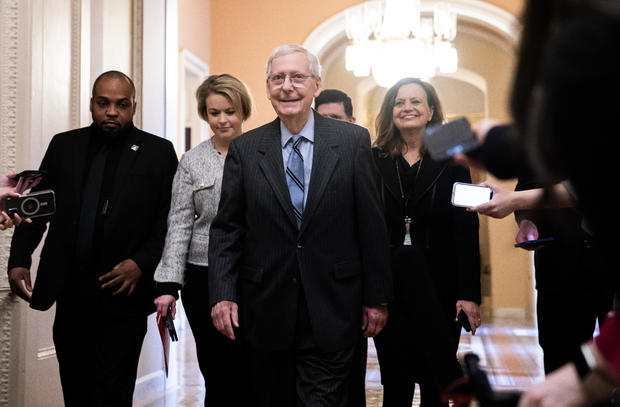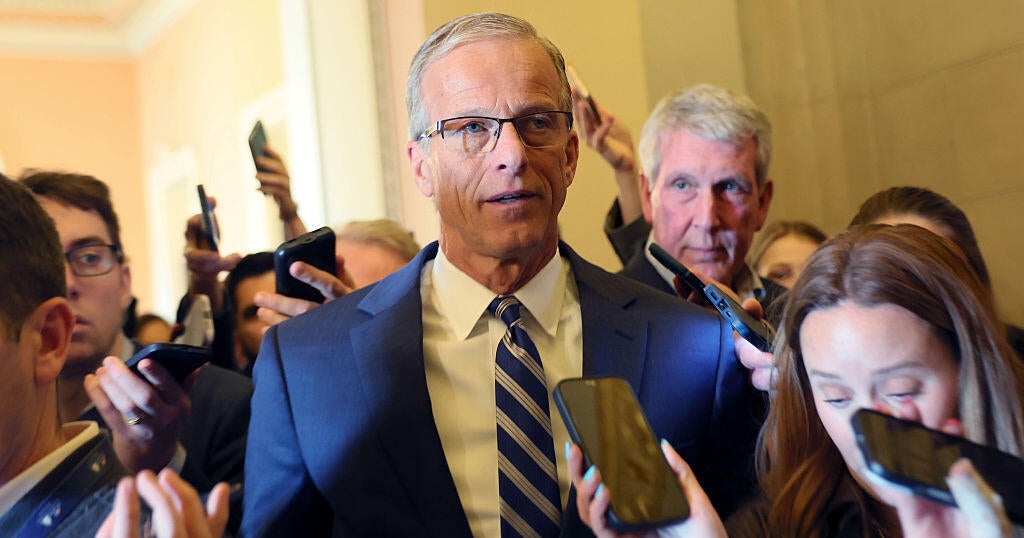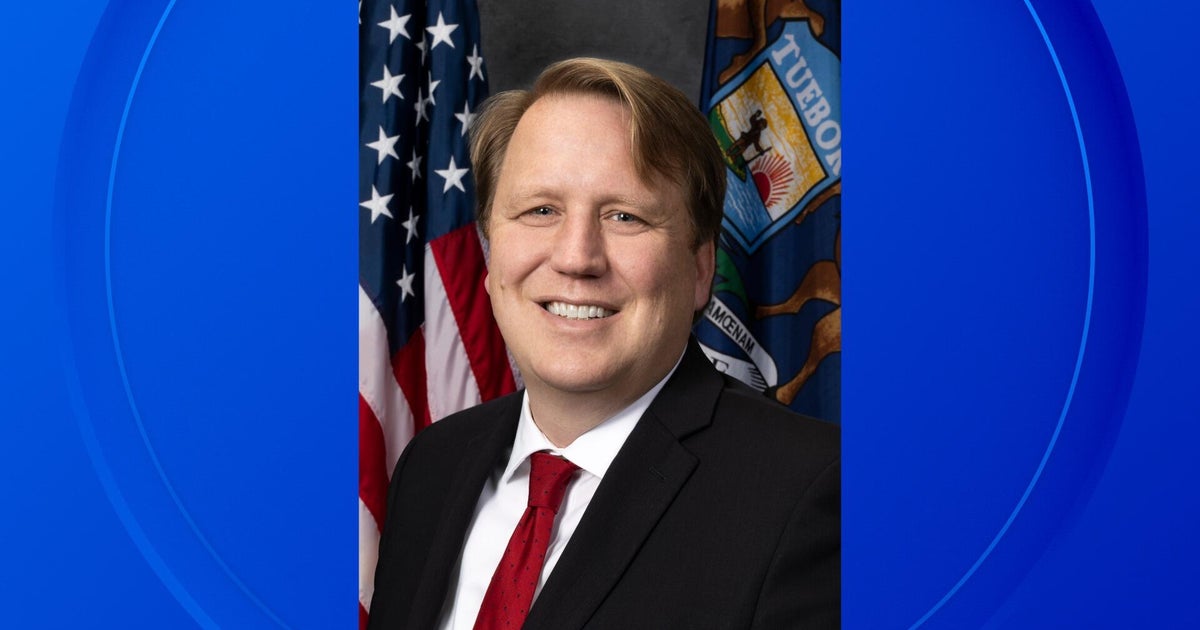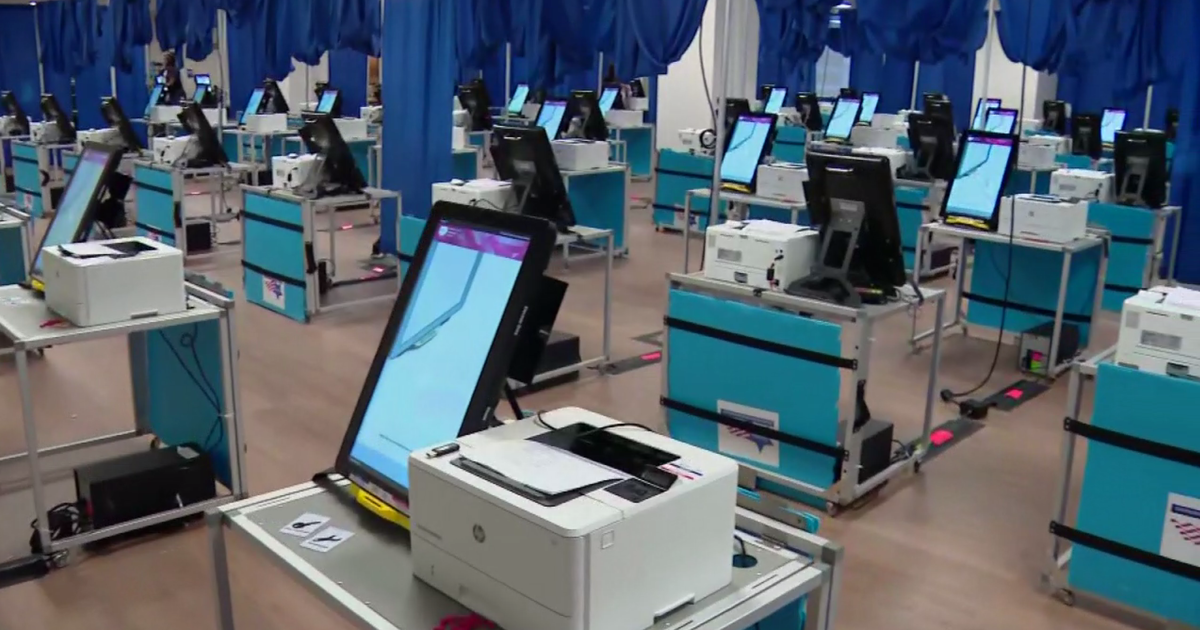Mitch McConnell stepping down as Senate GOP leader, ending historic 17-year run
Washington — Senate Minority Leader Mitch McConnell announced he's stepping down as the upper chamber's GOP leader after November's elections, ending a 17-year run that made him the longest-serving party leader in Senate history and often the most powerful Republican in Washington.
McConnell, who turned 82 last week, announced his decision on the Senate floor on Wednesday.
"I always imagined a moment when I have total clarity and peace about the sunset of my work. A moment when I'm certain I have helped preserve the ideals I so strongly believe," he said. "That day arrived today."
In emotional remarks, McConnell reflected on his 40 years in the Senate, saying that when he was first elected to the chamber in 1984 he "never could have imagined" becoming the longest-serving senator to represent Kentucky in the state's history.
"To serve Kentucky in the Senate has been the honor of my life, to lead my Republican colleagues has been the highest privilege," he said, before announcing that this would be his last term as the Senate GOP leader.
President Biden praised McConnell for his career, saying that during the years that they worked together, the two could speak honestly and work to put the country ahead of themselves.
"American Democracy is based on elected representatives coming together and bridging their different points of view to find common ground on behalf of the American people," Mr. Biden said. "I'm proud that my friend Mitch McConnell and I have been able to do that for many years, working together in good faith even though we have many political disagreements."
McConnell's work to confirm conservative judges and reshape the judiciary may well be his defining legacy. During the Trump administration, he shepherded hundreds of conservative judges through the Senate confirmation process to secure them lifetime appointments to the bench.
He also oversaw the successful confirmation of three Supreme Court justices, cementing a conservative majority on the high court. One of his most brazen political maneuvers came as Senate majority leader in 2016, when he refused to consider President Barack Obama's nominee to replace the late Justice Antonin Scalia. Keeping the seat vacant allowed President Donald Trump to nominate Neil Gorsuch when he took office the next year.
McConnell's grip on his conference has seemed to slip in recent months, coinciding with Trump's march to the GOP presidential nomination. The two have been at odds for years, with their relationship reaching a low point when McConnell condemned Trump after the attack on the Capitol on Jan. 6, 2021. (McConnell voted to acquit Trump at his impeachment trial, arguing it was unconstitutional to convict a former president on impeachment charges.)
When the bulk of McConnell's conference quickly rejected a bipartisan Senate-negotiated border security agreement at Trump's urging in recent weeks, McConnell relented, noting that the political dynamics at work had changed. And although McConnell succeeded in getting many Republican senators to support a foreign aid bill that includes funding for Ukraine days later, the chapter prompted some of the most vocal opposition yet to McConnell's continued leadership.
"Mitch McConnell is the least popular politician in America of either party. He is a symbol of everything that's wrong with Washington," Sen. Josh Hawley, a Missouri Republican, told reporters Wednesday ahead of McConnell's announcement.
McConnell survived a leadership challenge after the 2022 midterm elections, overcoming opposition from a group of conservatives disillusioned with his stewardship of the GOP conference.
Last year, McConnell suffered a fall that sparked concern about his health, followed by a pair of incidents where he appeared to freeze up while speaking to reporters. Though many in his conference expressed steadfast confidence in his leadership after the incidents, some questioned his ability to continue to lead the party. McConnell repeatedly shrugged off the questions, and made no mention of his health during remarks on Wednesday.
In his floor speech, McConnell said he plans to remain in his post until his party selects a new leader, who would be elected in November and take the helm in 2025. He said he plans to stay in the Senate to "finish the job" that the people of Kentucky elected him to do, suggesting that he'll remain in the chamber until his term expires in 2026.
"Father time remains undefeated. I'm no longer the young man sitting in the back hoping colleagues would remember my name," McConnell said. "It's time for the next generation of leadership."
The leader said he has "full confidence" in his conference to choose his replacement, though he did not endorse a successor.
"I still have enough gas in my tank to thoroughly disappoint my critics and I intend to do so with all the enthusiasm which they have become accustomed," he said.
Alan He contributed reporting.








